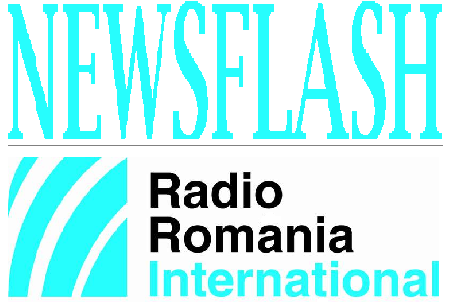March 1, 2014 UPDATE
A roundup of domestic and international news

România Internațional, 01.03.2014, 21:38
The presence of any Russian troop on Ukraine’s territory, without its approval and outside the bilateral agreements and notifications already in force, can be regarded as an aggression towards Ukraine, said on Saturday Romanian President Traian Basescu. The statement was made in a message conveyed following the decision made by the upper chamber of the Russian Parliament, the Federation Council, to approve the use of Russian troops to, quote, “normalize the political situation in Ukraine”. Romania, reads president Basescu’s message, is concerned with the way in which Ukraine’s sovereignty, independence and territorial integrity are observed. According to Traian Basescu, any political dispute between the regional administration of the Russian speaking autonomous region of Crimea and the central power of the Ukrainian state cannot be settled through force, but only through direct dialogue, within the provisional framework of the Constitution. On Saturday night, president Basescu called an emergency meeting of the national security structures. After the meeting, the president said that Romania is not directly affected by the situation in Ukraine and there are no immediate threats to national security. However, Romania will remain active in the relations with its allies, the president also said. He mandated representatives of the Romanian state to present Romania’s stand on the matter at the debates that are to be held by NATO and the EU.
Romanian PM Victor Ponta was received by Pope Francis on Saturday. The Romanian official attended the Congress of the Party of European Socialists, which designated the German Martin Schulz, currently President of the European Parliament, as candidate for the office of president of the European Commission. On Friday, Victor Ponta had talks with his counterpart Matteo Renzi, three days after the latter took over the leadership of the government in Rome. The talks focused on the political and economic partnership between the two countries and prospects to boost investment.
The representative council of the Democratic Union of Ethnic Hungarians in Romania on Saturday mandated the leadership of the Union to participate in the negotiations with the Social Democratic Party, number one in the ruling coalition, for the formation of a new government. If negotiations go well, on Monday the Social Democratic Party will sign two agreements, one with the Democratic Union of Ethnic Hungarians, and another one with the group of national minorities. Prime Minister Victor Ponta has announced that the new executive will carry on the program of the Social Liberal Union, winner of the 2012 elections. We recall that the National Liberal Party, former number two in the governing coalition, decided to step down early last week, because of the many divergences with the Social Democratic Union.
The European Commission and the Council of Europe will support the Roma integration activities held under the ROMACT programme, the two institutions have announced. 44 local councils from five EU countries will participate in the program, whose goal is to bridge the gap between the Roma and the other citizens. So far, the EC and the Council of Europe have earmarked one million Euros for this program, and another million is to be allocated in the next stage. Implementing measures at local and regional level is vital in fields such as employment, education and health. There are between 10 — 12 million Roma citizens in Europe, most of them faced with intolerance, abuse and social exclusion.





























